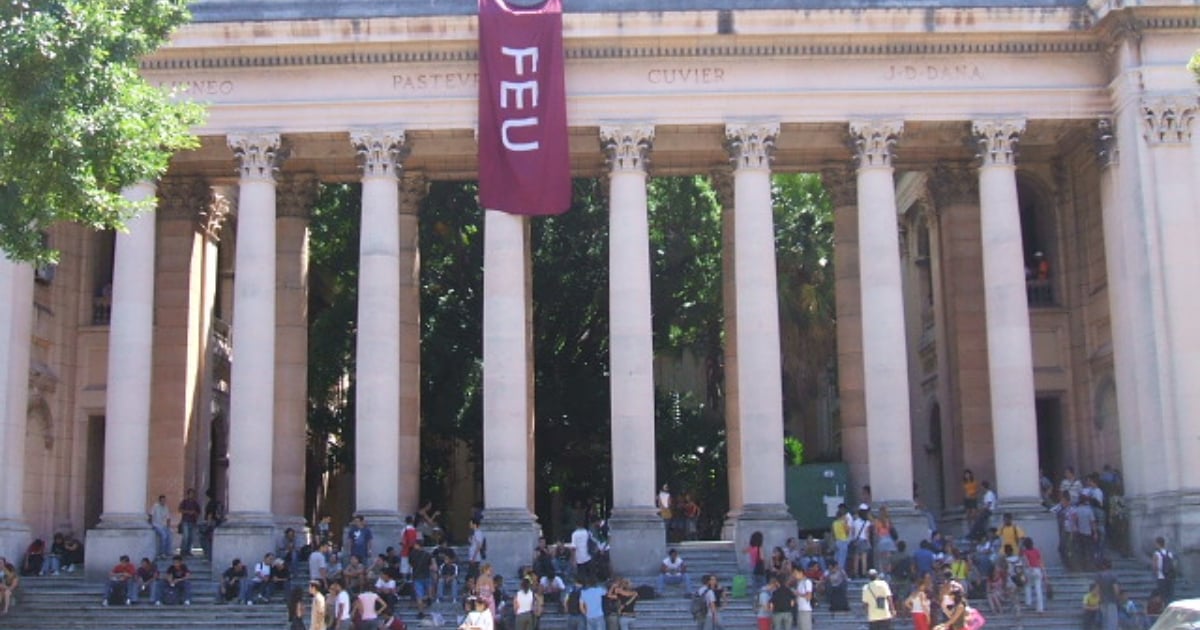An increasing wave of student discontent is rising against the recent policies of Cuba's Telecommunications Company (ETECSA). On Tuesday, students from the Mathematics and Computing Faculty at the University of Havana (UH) initiated an indefinite academic strike, protesting the state-owned company's latest measures. This move follows similar condemnation from students at the José Antonio Echeverría Technological University of Havana (CUJAE), expressed just hours earlier.
The call for the strike was shared through the faculty's official Telegram channel, where students criticized the negative impact of ETECSA's policies, such as the monthly cap on national mobile data recharges. They demanded a shift in the approach to internet access management on the island.
Demands and Protests
As part of their protest, students urged their peers to boycott classes starting Wednesday, June 4, until four key demands are met:
- Reversal or modification of measures imposed on May 30 in a way that considers collective solutions.
- A meeting between ETECSA representatives and the student body, ensuring clarity and transparency regarding the decisions made.
- Utilization of students’ technical expertise to develop fair and viable solutions.
- Active involvement of all affected social sectors in creating sustainable alternatives.
In their statement, the students appealed to the university administration to support the protest, emphasizing their role as representatives of the student body. They also urged faculty members to join the cause, advocating for unity and the common good.
An Expanding Movement
This call for action at UH comes shortly after the official statement from the University Student Federation (FEU) and the Union of Young Communists (UJC) at CUJAE, who also strongly opposed ETECSA's measures, describing them as exclusive, technically flawed, and against socialist ideals.
The CUJAE statement criticized the lack of transparency in ETECSA's communication, the absence of convincing public explanations, and the disproportionate impact of the new rates on vulnerable sectors. They proposed viable solutions, including implementing nighttime bonuses, segmented usage plans, and extending benefits to educators and social workers.
Both statements call for respect from ETECSA's leadership, a more empathetic stance, and genuine dialogue with the academic community.
Institutional Silence
As of now, neither the University of Havana authorities nor ETECSA representatives have made public statements in response to these protests. Meanwhile, discontent is growing in classrooms and threatens to spread to other faculties and universities across the country. The Telegram channel of the Mathematics and Computing Faculty was deleted shortly after the strike announcement.
Frequently Asked Questions about the Student Protest and ETECSA's Policies in Cuba
What triggered the student strike at the University of Havana?
The strike was triggered by ETECSA's new policies, including a monthly limit on national mobile data recharges, which students argue negatively affect internet access and demand a reconsideration of these measures.
What are the main demands of the protesting students?
Students are demanding the reversal or modification of ETECSA's measures, a transparent meeting with the company, input in designing viable solutions, and the involvement of affected social sectors in creating alternatives.
How have other student organizations responded to ETECSA's policies?
Organizations like the FEU and UJC at CUJAE have also condemned ETECSA's policies, highlighting issues of exclusivity, technical inconsistency, and their contradiction to socialist values. They have proposed alternative solutions to address these concerns.
